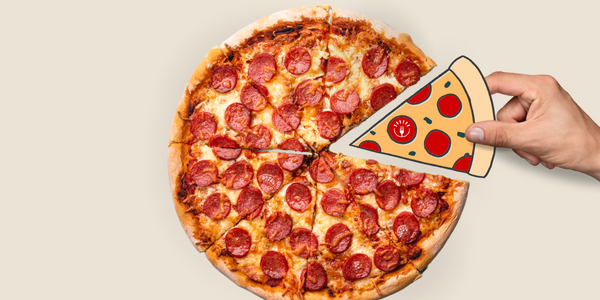
The age-old debate of the most important meal of the day still stands and remains one of the most controversial health quarrels. In a generally black and white world, it is common nature to seek surefire answers. However, when it comes to nutrition, rarely does an indisputable answer exist.
Although that first meal is often regarded as the most important of the day in American culture, is breakfast so important and why or why not? A dietitian provides insight into the most burning questions about the infamous meal that breaks an overnight fast.
The History of Breakfast
Historically speaking, breakfast used to be the most condemned meal of the day, signifying gluttony and unnecessity. Breakfast did not bask in glory until the middle of the 18th century and recipes were not even included in cookbooks until the 19th century.
Historians purport that John Harvey Kellogg changed the nutritional breakfast landscape with the invention of his sugar-laden cereal. They also suggest that marketing ploys popularized the meal which eventually spurred much controversy among the scientific community.
Interestingly, in earlier centuries breakfast did not have much importance ascribed to it and specific foods were not labeled as "breakfast foods". In fact, people often consumed leftover dinner if they participated in an early breaking of the fast.
However, during the industrial revolution, people began blaming hearty breakfasts of eggs and meat on indigestion and low work output at the workplace. As a result, religious health gurus essentially invented cereal and marketed it as a lighter, healthier breakfast option that led to more efficiency and productivity at work.
Once vitamins were discovered and fortified into cereals, these refined wheat products became a convenient food for workers to eat and mothers to provide for their children. But this is all despite a lack of actual scientific evidence to back its importance.
Then, in the early 1990s, studies began examining breakfast and its impact on health markers such as weight loss. The problem was, and still is, that there are so many definitions of breakfast, the studies are largely observational and not randomized. This makes it difficult to control for confounding variables such as exercise, smoking, and other lifestyle habits. Thus, two highly heated camps still exist: a group that asserts breakfast kickstarts metabolism and another that swears by fasting, sometimes into the early afternoon hours.
So, to summarize, a combination of fear of indigestion and low work performance, religious moralization, and advertising paved the notion of breakfast as the most important meal of the day. Not science.
Nonetheless, based on the available scientific literature, the only consensus among researchers is that what someone chooses to eat to break their fast is more important than when they choose to consume it. Rather than asking, "What time should I eat breakfast," a better question is "What should I eat to break my fast?"
Asking this second question then provides a clearer-cut answer to the question of whether breakfast is so important. In short, the answer becomes a resounding yes. But not because eating a meal between the hours of 5:00 a.m. to 9:00 a.m. is vital. Rather, it is important because this first meal sets the tone for bodily functions for the rest of the day.
Breakfast Believers
Those who believe in breakfast have typically heard or experienced one or more of the following claims:
1. Eating breakfast within an hour of waking spurs metabolism.
2. Consuming breakfast improves work/school performance.
3. Skipping breakfast causes weight gain.
4. Breakfast reduces hanger (feeling anger due to hunger).
5. Eating breakfast makes me a healthier person.
While these may ring true for some, they may not for others. And thanks to bio-individuality, the cornerstone of healthy eating, it is ok if someone does not believe these claims or has not experienced these effects. Perhaps some humans evolved to eat something upon waking and others did not.
Unfortunately, there is little hardcore scientific evidence to refute any of these claims. For every study that asserts those who eat breakfast maintain a healthier weight over time or perform better in school, studies equally suggest intermittent fasting through the morning is a healthful practice and actually leads to more cognitive clarity. Which transitions well into the next camp of people.
Breakfast Naysayers
Those who go against breakfast have typically heard or experienced one or more of the following claims:
1. Intermittent fasting is a quick weight loss technique.
2. Fasting through the morning is good for metabolic health.
3. Skipping breakfast offers more mental clarity throughout the morning.
4. Not consuming breakfast is an easy way to slash calories.
5. Eating breakfast causes blood sugar spikes and crashes.
Interestingly, there is some solid evidence to support the gist of these claims. Undoubtedly, fasting is healthful towards cells. Fasting induces a process called autophagy, where cells essentially kill themselves to regrow newer and better, and research reveals that the process of autophagy is associated with longevity. Furthermore, when someone is fasting, metabolism can switch to burning ketones rather than glucose as fuel, which is correlated with improved cognitive function.
So does this mean breakfast should be vilified? No, not necessarily.
First of all, most people endure an adequate fast every night that they sleep for eight or more hours. Since there is little research to quantify the best fasting window, eight hours is sufficient enough, though 10 to 12 may confer further health benefits.
Moreover, long fasts (more than eight hours) are contraindicated for certain groups of people such as those who are pregnant or breastfeeding or those with a history of disordered eating/eating disorders. Thus, it is more important and healthier for these folks to break their fast earlier rather than later.
The Dietitian's Final Verdict
Obviously, the research is not completely clear whether breakfast is really as important as many people believe. In fact, the only hardcore evidence suggests some fasting window is healthful for cells and metabolism.
So, taking into consideration the conflicting research and client experiences, the timing of breakfast is much less important than what someone chooses to eat to break their fast. Undeniable evidence correlates typical breakfast foods like sugar cereals, refined flour toast, pancakes, waffles, and cured meats with negative health consequences. These include an increased risk of obesity, heart disease, diabetes, and certain forms of cancer among many others.
Conversely, a first meal rich in lean protein, carbohydrates that contain fiber, and satiating fat is associated with better blood sugar management, improved energy levels, and reduced risk of all chronic diseases. Thus, whenever one decides to break their fast, focus on consuming:
• Lean protein: whole eggs and egg whites, chicken or turkey sausage, smoked salmon (lox), and Greek yogurt
• Fiber: fruits, veggies, and whole grains like oats, whole-wheat toast, and quinoa
• Healthy fats: avocado, nuts and seeds, peanut butter and other nut butters, olive oil, and full-fat dairy
Healthy breakfast options and pairings include cottage cheese and fruit, yogurt-filled cantaloupe, and salmon with a sunny-side-up egg.
Finally, if the decision to eat breakfast or not still feels ambiguous, consider the following scenarios:
Groups of people who should likely eat breakfast:
• Most young children
• Those who take a medication in the morning that requires a meal
• Pregnant and breastfeeding women
• Those with a history of eating disorders
• Anyone who wakes up ravenously hungry
• Those who acutely feel the effects of low blood sugar in the morning
• Most athletes
Groups of people who need not make breakfast a hard "rule":
• Those who do not feel hungry in the morning
• People who find fasting easy throughout daytime hours
• Those with certain health conditions like type 2 diabetes or obesity
• People who do not participate in vigorous exercise
• Those with busy morning schedules
• People with certain health conditions where starving cells is beneficial (some cancers and epilepsy among others)
While not an exhaustive list, hopefully it provides some guidance. Health implications, lifestyles, personality, and fitness goals should also be considered when deciding to eat soon upon waking or waiting until later.
The Bottom Line
Thanks to the invention of cereal and its subsequent marketing ploys, breakfast became one of the most heated, controversial health topics of our time. However, its importance resides in the actual food choices more than the time which it is eaten.
While some fasting windows are undoubtedly healthy towards cells, certain groups of people will likely benefit from eating soon after waking. Others, on the other hand, will remain perfectly healthy waiting until the afternoon to break their fast. This is bio-individuality at its finest.
To conclude, prioritize the nutritional quality of the foods that break the fast more than the specified time the meal is consumed.
References:
Karasu S. Controversy for Breakfast. Psychology Today. Published October 9, 2020. www.psychologytoday.com/us/blog/the-gravity-weight/202010/controversy-breakfast.
Oksman O. How Lobbyists Made Breakfast 'the Most Important Meal of the Day'. The Guardian. Published November 28, 2016. www.theguardian.com/lifeandstyle/2016/nov/28/breakfast-health-america-kellog-food-lifestyle.







